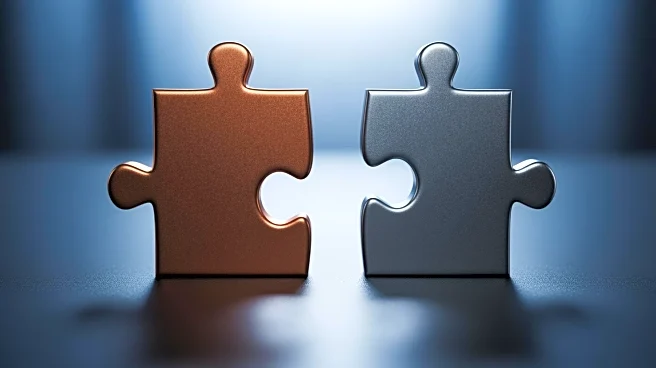What's Happening?
Lori Gottlieb, a psychotherapist, addresses the challenge of sharing personal faith with family members who hold different beliefs. In a column, she advises a grandparent on how to communicate their faith to a grandson without attempting to convert him.
Gottlieb suggests having an open conversation with the child's parents to establish respect for differing beliefs while being authentic about one's own faith. The approach emphasizes the importance of respecting individual differences within family relationships and fostering an environment where diverse beliefs are acknowledged.
Why It's Important?
This advice is significant for families navigating religious differences, as it promotes understanding and respect for individual beliefs. It highlights the importance of open communication in maintaining healthy family dynamics and preventing conflicts. The approach encourages families to embrace diversity in beliefs, which can strengthen relationships and foster mutual respect. This perspective may influence broader societal attitudes towards religious tolerance and acceptance, contributing to more inclusive communities.
What's Next?
Families facing similar challenges may consider adopting Gottlieb's approach to facilitate discussions about faith and beliefs. This could lead to more open dialogues within families and communities, promoting understanding and reducing tensions. As societal attitudes towards religious diversity evolve, there may be increased emphasis on educational resources and support for families navigating these dynamics. The conversation around faith and family relationships may also inspire further research into effective communication strategies for diverse belief systems.
Beyond the Headlines
The discussion on faith and family dynamics raises ethical considerations about the role of religion in personal relationships. It underscores the importance of respecting individual autonomy and the potential impact of religious beliefs on family cohesion. This development may prompt broader discussions on the intersection of faith, identity, and family values, influencing cultural attitudes towards religious diversity and acceptance.















